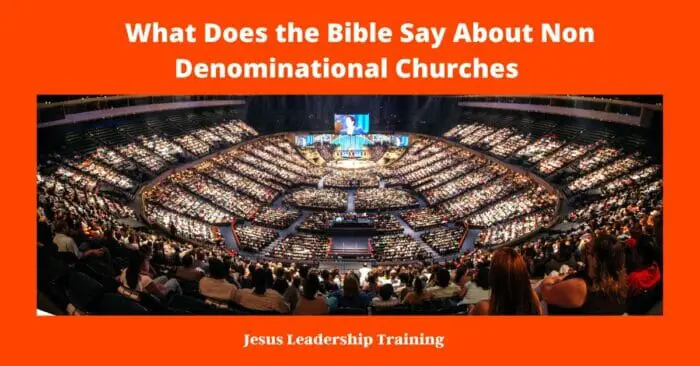What Does the Bible Say About Non Denominational Churches – The Bible does not specifically mention non-denominational churches, but it does have much to say about the importance of Christian unity and fellowship. The New Testament is filled with references to the church as a unified body of believers, and it emphasizes the importance of gathering together to worship and share the Gospel of Jesus Christ.
Non-denominational churches are often a reflection of this biblical mandate to come together in unity, regardless of denominational differences. By focusing on the core teachings of the Bible and not the specific doctrines of a denomination, non-denominational churches provide a place for all believers to come together in fellowship and worship.
Table of Contents
What Does the Bible Say About Non Denominational Churches

Non-denominational churches are a relatively new phenomenon in the history of Christianity. They are independent churches that are not attached to a particular denomination and do not follow a specific set of beliefs or teachings. Although they are not affiliated with a denomination, they are still considered Christian churches. In this blog post, we will explore what the Bible says about non-denominational churches and the purpose of non-denominational churches.
What is a Non-Denominational Church
Non-denominational churches are independent churches that are not associated with a particular denomination. These churches are typically led by a pastor or other church leadership and may or may not have a formal organizational structure. Non-denominational churches often emphasize the importance of the Bible and Christian teachings, as well as offering practical guidance for dealing with real-life issues. These churches usually have a wide range of worship styles, from traditional to contemporary.
List of major Christian Denominations
- Roman Catholicism: The largest Christian denomination, Roman Catholics make up about half of all Christians worldwide. Roman Catholics follow the teachings of the Pope and uphold the doctrine of the Catholic Church.
- Eastern Orthodox: The second largest Christian denomination, Eastern Orthodoxy is practiced mainly in Eastern Europe, the Middle East, and parts of Africa. Eastern Orthodoxy upholds the teachings of the Seven Ecumenical Councils and is divided into several distinct churches.
- Protestantism: Protestantism is the third largest Christian denomination. Protestantism is made up of several distinct churches and denominations, but all of them hold to the basic beliefs of the Protestant Reformation.
- Anglicanism: This denomination is the fourth largest and is practiced mainly in the United Kingdom and in countries that once belonged to the British Empire. Anglicanism is a form of Protestantism and includes Episcopal, Methodist, and Presbyterian churches.
- Lutheranism: Lutheranism is the fifth largest Christian denomination. Lutheranism is a form of Protestantism that was founded by Martin Luther and is practiced mainly in Europe, Scandinavia, and the United States.
- Baptist: Baptists are the sixth largest Christian denomination and are practiced mainly in the United States. Baptists are a form of Protestantism that emphasizes the importance of the individual’s personal relationship with God and the authority of the Bible.
- Pentecostalism: Pentecostalism is the seventh largest Christian denomination and is practiced mainly in the United States and in developing countries. Pentecostalism emphasizes the work of the Holy Spirit and emphasizes a personal relationship with God.
- Jehovah’s Witnesses: Jehovah’s Witnesses are the eighth largest Christian denomination. They are a form of Protestantism that emphasizes the importance of the Bible and the imminent return of Jesus Christ.
- Seventh-day Adventists: Seventh-day Adventists are the ninth largest Christian denomination. They are a form of Protestantism that emphasizes the importance of observing the seventh-day Sabbath and the imminent return of Jesus Christ.
- Mormonism: Mormonism is the tenth largest Christian denomination. It is a form of Christianity that was founded by Joseph Smith in 19th century America and is practiced mainly in the United States. Mormonism emphasizes the importance of the Book of Mormon and other revelations from God.
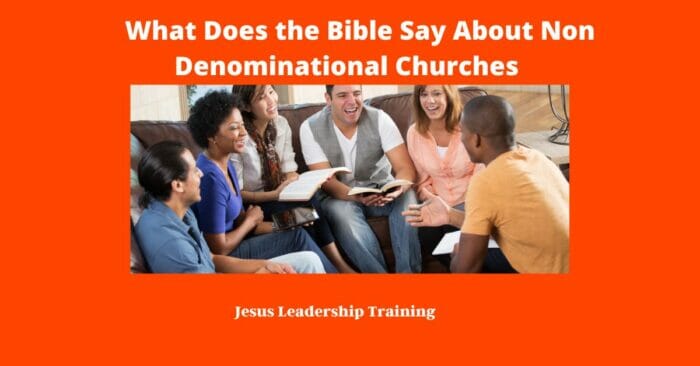
Beginnings of These Major Christian Dominations
Christianity is one of the oldest and most widely practiced religions in the world, with more than two billion adherents. While there are many different denominations of Christianity, there are a few major divisions that have defined the major branches of the faith. Roman Catholicism, Eastern Orthodox, Protestantism, Anglicanism, and Lutheranism are the five major denominations of Christianity. In addition, there are other Christian movements such as Baptist, Pentecostalism, Jehovah’s Witnesses, Seventh-Day Adventists, and Mormonism that have also become popular over the years.
Roman Catholicism
Roman Catholicism is the oldest and largest branch of Christianity and is the official religion of the Roman Empire. It is believed to have begun in the 1st century AD when the original followers of Jesus began to spread the faith. Roman Catholicism is based on the teachings of Jesus Christ as outlined in the New Testament, with the Pope being the spiritual leader of the faith. Roman Catholicism is divided into four main branches: Latin, Eastern, Oriental, and Uniate Catholic Churches.
Eastern Orthodox
The Eastern Orthodox Church is another major denomination of Christianity and is the second largest Christian group in the world. It traces its roots back to the original followers of Jesus in the 1st century AD. The Eastern Orthodox Church is based on the teachings of Jesus as outlined in the New Testament, and the Patriarch is the spiritual leader of the faith. The Eastern Orthodox Church has many branches, including the Greek Orthodox, Russian Orthodox, Serbian Orthodox, Bulgarian Orthodox, and Ukrainian Orthodox Churches.
Protestantism
Protestantism is a branch of Christianity that emerged in the 16th century as a reaction to the Catholic Church’s power and influence. It is based on the teachings of the Bible and emphasizes personal faith and salvation by grace alone. Protestantism is divided into several different denominations, including Anglicanism, Lutheranism, Calvinism, Anabaptism, and Methodism.
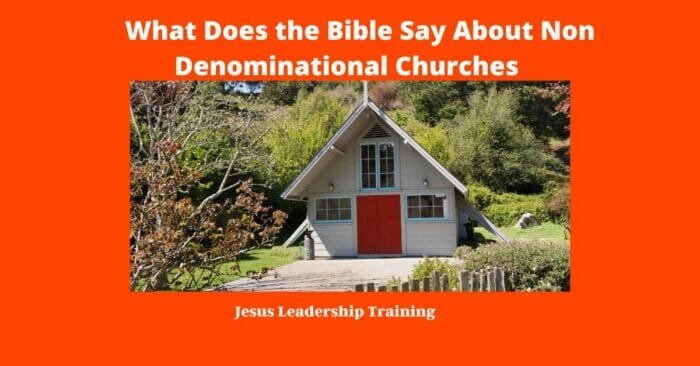
Anglicanism
Anglicanism is the official religion of the Church of England, and it is based on the teachings of the Bible and the Book of Common Prayer. The Church of England is a Protestant church that was established in the 16th century as a reaction to the Catholic Church’s power and influence. The spiritual leader of Anglicanism is the Archbishop of Canterbury.
Lutheranism
Lutheranism is a branch of Protestantism that was founded by Martin Luther in the 16th century. It is based on the teachings of the Bible and emphasizes faith and salvation. Lutheranism has several main branches, including the Lutheran Church–Missouri Synod and the Evangelical Lutheran Church in America.
Baptist
Baptism is a Christian denomination that emerged in the 17th century as a reaction to the Catholic Church’s power and influence. It is based on the teachings of the Bible and emphasizes personal faith and salvation by grace alone. Baptist churches are divided into two main branches: the Southern Baptist Convention and the American Baptist Churches USA.
Pentecostalism
Pentecostalism is a Christian denomination that emerged in the early 20th century. It is based on the teachings of the Bible and focuses on the power of the Holy Spirit, speaking in tongues, and divine healing. Pentecostalism is divided into several different denominations, including the Assemblies of God, Church of God in Christ, and International Church of the Foursquare Gospel.
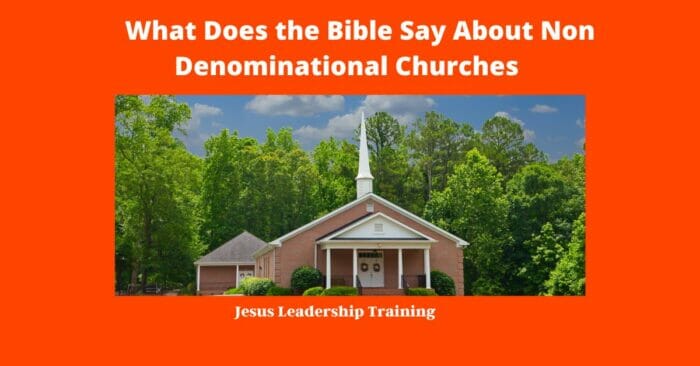
Jehovah’s Witnesses
Jehovah’s Witnesses is a Christian denomination that emerged in the late 19th century. It is based on the teachings of the Bible and its followers believe that the Bible is the only source of truth. The spiritual leader of Jehovah’s Witnesses is the Governing Body of Jehovah’s Witnesses.
Seventh-day Adventists
The Seventh-day Adventist Church is a Christian denomination that was founded in the mid-19th century. It is based on the teachings of the Bible and its followers believe that Jesus will return soon. The spiritual leader of the Seventh-day Adventist Church is the General Conference of Seventh-day Adventists.
Mormonism
Mormonism is a Christian denomination that was founded in the early 19th century. It is based on the teachings of the Book of Mormon, and its followers believe in the importance of faith, family, and service to others. The spiritual leader of Mormonism is the President of The Church of Jesus Christ of Latter-day Saints.
Christianity is a complex and diverse religion, with many different denominations and branches. Each of the major denominations of Christianity has its own unique history, beliefs, and teachings, and there are many other Christian denominations and movements that have emerged over the years. No matter what denomination or branch of Christianity one belongs to, the teachings of Jesus remain at the core of the faith.
What Led to the Rise of Non Denominational Churches in the 20th Century (Downside,Pros and Cons)
The rise of non-denominational churches in the 20th century has been a fascinating phenomenon in the history of Christianity. Non-denominational churches are those which do not have any formal connection to any particular denomination or tradition within Christianity, but instead operate independently and allow for a variety of different beliefs.
At the start of the 20th century, Christianity was largely dominated by the traditional denominational structures. This was largely due to the prevalence of denominational organizations such as the National Council of Churches, which was established in 1908. This organization was responsible for the coordination of various church denominations and the setting of standards for Christian worship and theology.
However, as the 20th century progressed, the concept of non-denominational churches began to gain traction. This was due to a number of factors, including the rise of the ecumenical movement, which sought to bring together different Christian denominations and traditions under a single umbrella. Additionally, the increasing influence of pentecostalism, which emphasized the power of the Holy Spirit and individual experience rather than the traditional denominational structures, also helped to fuel the growth of non-denominational churches.
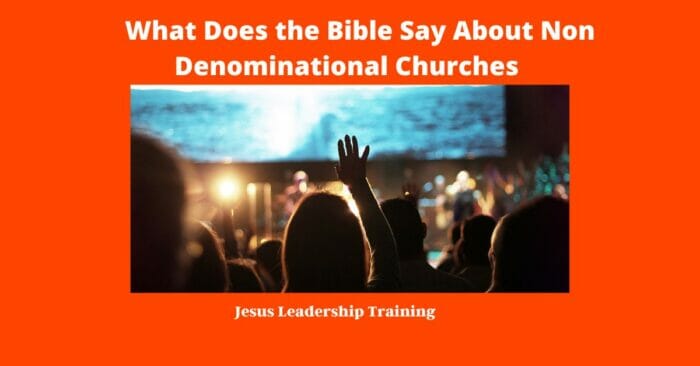
Moreover, the increasing emphasis on individual expression and religious freedom in the 20th century also helped to make non-denominational churches more acceptable. This was especially true in the United States, where the First Amendment to the Constitution guarantees freedom of religion. Thus, individuals were free to worship in any manner they desired without adherence to a particular denomination.
The rise of non-denominational churches in the 20th century has had a profound impact on the way that Christianity is practiced in the modern world. By allowing for a variety of different beliefs, these churches have made it easier for individuals to explore their own religious convictions without feeling confined to any one denomination. Additionally, by avoiding the trappings of traditional denominational structures, non-denominational churches have enabled Christianity to remain dynamic and open to a variety of interpretations.
What Does the Bible Say About Non-Denominational Churches?
The Bible does not specifically address the issue of non-denominational churches. However, the Bible does emphasize the importance of unity among Christians. In John 17:21, Jesus prayed that all believers may be “one, as you, Father, are in me, and I in you.” In Ephesians 4:3-6, Paul reminded believers to “make every effort to keep the unity of the Spirit through the bond of peace.” These passages emphasize the need for unity among Christians, regardless of denomination.
Comparing the Differences between Non Denominational and Denominational Churches
- Denominational churches are organized around shared beliefs, which are typically outlined in a denomination’s statement of faith, while non-denominational churches have no such statement of faith.
- Denominational churches typically have a hierarchical structure of clergy, while many non-denominational churches are led by a pastor or team of pastors who are elected by the congregation.
- Denominational churches often adhere to strict rules of conduct and may have a dress code for ministers, while non-denominational churches may be more relaxed about such rules.
- Denominational churches often have a history of engaging in missionary work and social justice initiatives, while non-denominational churches may be less involved in such activity.
- Denominational churches may have traditional liturgies and rituals, while non-denominational churches may be more flexible about such matters.
- Denominational churches may have specific teaching on controversial topics such as abortion and same-sex marriage, while non-denominational churches may take a less controversial stance on such topics.
- Denominational churches often have a centralized governing body, while non-denominational churches tend to be more autonomous.
- Denominational churches may have an established membership system, while non-denominational churches may not.
Basic Structure Found of The Church in The New Testament
- Elders: Elders are the spiritual leaders of the church in the New Testament. They were responsible for overseeing the spiritual health of the local church and for providing spiritual direction and teaching. The qualifications for an elder can be found in 1 Timothy 3 and Titus 1.
- Deacons: Deacons are the servants of the local church. They are responsible for serving and taking care of the practical affairs of the church. The qualifications for a deacon can be found in 1 Timothy 3.
- Church Members: The members of the church in the New Testament were all believers in Jesus Christ and had accepted Him as their Lord and Savior. They gathered together regularly to worship, pray, study God’s Word, and to serve one another.
- Church Meetings: Church meetings were held in the New Testament to worship, pray, and study the Scriptures. They were also used to make decisions about how to lead the church and how to serve the community.
- Church Discipline: Church discipline was practiced in the New Testament to maintain moral purity and holiness in the church. It was used to correct, rebuke, and restore believers who were living in sin.
- Gifts of the Spirit: The gifts of the Spirit were bestowed upon believers in the New Testament to equip and enable them to serve in the church. These gifts included prophecy, tongues, knowledge, healing, and the ability to interpret the Scriptures.
- Mission and Ministry: The church in the New Testament was called to proclaim the gospel and to make disciples. They were also called to serve the poor and the oppressed in their communities.
What Does the ESV Teach About Non-Denominational Churches?
The English Standard Version (ESV) of the Bible does not specifically address the issue of non-denominational churches. However, it does emphasize the importance of unity among believers. In John 17:21, Jesus prayed that all believers may be “one, as you, Father, are in me, and I in you.” In Ephesians 4:3-6, Paul reminded believers to “make every effort to keep the unity of the Spirit through the bond of peace.” These passages emphasize the need for unity among Christians, regardless of denomination.
How Does God View Non-Denominational Churches?
The Bible does not specifically address the issue of non-denominational churches. However, the Bible does emphasize the importance of unity among believers. In John 17:21, Jesus prayed that all believers may be “one, as you, Father, are in me, and I in you.” In Ephesians 4:3-6, Paul reminded believers to “make every effort to keep the unity of the Spirit through the bond of peace.” These passages emphasize the need for unity among Christians, regardless of denomination.
What is the Purpose of Non-Denominational Churches?
Non-denominational churches are designed to be a place of worship where Christians can come together for fellowship and spiritual growth. These churches focus on the teachings of the Bible and emphasize the importance of personal faith. They also provide a place for believers to share their experiences and support each other through prayer and spiritual growth.
What Does Jesus Christ Say About Non-Denominational Churches? Are Non-Denominational Churches True Churches?
The Bible does not specifically address the issue of non-denominational churches. However, Jesus did emphasize the importance of unity among believers. In John 17:21, Jesus prayed that all believers may be “one, as you, Father, are in me, and I in you.” In Matthew 18:20, Jesus said, “For where two or three are gathered in my name, there am I among them.” These passages emphasize the need for unity among believers, regardless of denomination. As such, non-denominational churches can be considered true churches.
What is the Word of God on Non-Denominational Churches?
The Bible does not specifically address the issue of non-denominational churches. However, the Bible does emphasize the importance of unity among believers. In John 17:21, Jesus prayed that all believers may be “one, as you, Father, are in me, and I in you.” In Ephesians 4:3-6, Paul reminded believers to “make every effort to keep the unity of the Spirit through the bond of peace.” These passages emphasize the need for unity among Christians, regardless of denomination.
Does the Holy Spirit Guide Non-Denominational Churches?
The Bible does not specifically address the issue of the Holy Spirit guiding non-denominational churches. However, the Bible does emphasize the importance of unity among believers and the presence of the Holy Spirit in the church. In John 14:16-17, Jesus said, “And I will ask the Father, and he will give you another Helper, to be with you forever, even the Spirit of truth.” In 1 Corinthians 12:13, Paul said, “For in one Spirit we were all baptized into one body—Jews or Greeks, slaves or free—and all were made to drink of one Spirit.” These passages emphasize the presence and guidance of the Holy Spirit in the church, regardless of denomination.
What are the Advantages of a Non-Denominational Churches?
Non-denominational churches offer a number of advantages. These churches typically emphasize the importance of the Bible and Christian teachings, as well as offering practical guidance for dealing with real-life issues. These churches also offer a wide range of worship styles, from traditional to contemporary. Additionally, non-denominational churches typically have a more relaxed atmosphere, which can be beneficial for those who are new to the Christian faith.
What is the Difference Between a Specific Denomination and a Non-Denominational Church?
The primary difference between a specific denomination and a non-denominational church is that a specific denomination follows a particular set of beliefs and teachings, while a non-denominational church does not. Additionally, a specific denomination typically has a more structured organizational structure, while a non-denominational church does not.
Various Differences From Main Line Christian Churches
- Church Organization
- Acquiring Pastors
- Church Charter
- Church Beliefs
- Church Discipline
- Payments Back to Support Main Organization
How Does Joining a Non-Denominational Church Benefit Local Churches?
Joining a non-denominational church can benefit local churches in a number of ways. These churches can offer a more relaxed atmosphere for those who are new to the Christian faith. Additionally, non-denominational churches typically emphasize the importance of the Bible and Christian teachings, as well as offering practical guidance for dealing with real-life issues. As such, non-denominational churches can be a valuable asset to the local community.
What Does the New Testament Say About Non-Denominational Churches?
The New Testament does not specifically address the issue of non-denominational churches. However, the New Testament does emphasize the importance of unity among believers. In John 17:21, Jesus prayed that all believers may be “one, as you, Father, are in me, and I in you.” In Ephesians 4:3-6, Paul reminded believers to “make every effort to keep the unity of the Spirit through the bond of peace.” These passages emphasize the need for unity among Christians, regardless of denomination.
How Does Denominational Affiliation Affect Non-Denominational Churches?
Non-denominational churches are not affiliated with a particular denomination, so they are not bound by the beliefs or teachings of any particular denomination. As such, these churches are free to emphasize the importance of the Bible and Christian teachings, as well as offering practical guidance for dealing with real-life issues. Additionally, non-denominational churches typically have a more relaxed atmosphere, which can be beneficial for those who are new to the Christian faith.
What is the True Church According to Non-Denominational Churches?
Non-denominational churches typically believe that the true Church is made up of all believers, regardless of denomination. In John 17:21, Jesus prayed that all believers may be “one, as you, Father, are in me, and I in you.” In Ephesians 4:3-6, Paul reminded believers to “make every effort to keep the unity of the Spirit through the bond of peace.” These passages emphasize the need for unity among Christians, regardless of denomination.
How Does the Body of Christ View Non-Denominational Churches?
The Bible does not specifically address the issue of how the Body of Christ views non-denominational churches. However, the Bible does emphasize the importance of unity among believers. In John 17:21, Jesus prayed that all believers may be “one, as you, Father, are in me, and I in you.” In Ephesians 4:3-6, Paul reminded believers to “make every effort to keep the unity of the Spirit through the bond of peace.” These passages emphasize the need for unity among Christians, regardless of denomination.
What are the Differences Between Mainline Denominations and Non-Denominational Churches?
The primary difference between mainline denominations and non-denominational churches is that mainline denominations follow a particular set of beliefs and teachings, while non-denominational churches do not. Additionally, mainline denominations typically have a more structured organizational structure, while non-denominational churches do not.
What Does the Roman Catholic Church Teach About Non-Denominational Churches?
The Roman Catholic Church does not specifically address the issue of non-denominational churches. However, the Roman Catholic Church does emphasize the importance of unity among believers. In John 17:21, Jesus prayed that all believers may be “one, as you, Father, are in me, and I in you.” In Ephesians 4:3-6, Paul reminded believers to “make every effort to keep the unity of the Spirit through the bond of peace.” These passages emphasize the need for unity among Christians, regardless of denomination.
What are the Commonalities Among Christian Denominations and Non-Denominational Churches?
The primary commonality among Christian denominations and non-denominational churches is the belief in the teachings of the Bible. Additionally, all Christian denominations and non-denominational churches emphasize the importance of unity among believers. In John 17:21, Jesus prayed that all believers may be “one, as you, Father, are in me, and I in you.” In Ephesians 4:3-6, Paul reminded believers to “make every effort to keep the unity of the Spirit through the bond of peace.” These passages emphasize the need for unity among Christians, regardless of denomination.
How Are Non-Denominational Churches Different From Other New Churches in the United States?
Non-denominational churches are different from other new churches in the United States in that they are not affiliated with a particular denomination. Additionally, non-denominational churches typically emphasize the importance of the Bible and Christian teachings, as well as offering practical guidance for dealing with real-life issues. These churches also have a more relaxed atmosphere, which can be beneficial for those who are new to the Christian faith.
What is a Non Denominational Church
| Category | Non-Denominational Church |
|---|---|
| Definition | A non-denominational church is a Christian church that is not formally aligned with an established Christian denomination. |
| Beliefs | The beliefs can vary widely, but typically include belief in the Christian Bible as the inspired word of God, the Trinity, and salvation through Jesus Christ. |
| Structure | These churches are typically independent and self-governed. They do not report to a higher church authority or governing body, unlike churches that belong to denominations. |
| Worship | Worship styles can vary greatly, from traditional to contemporary, depending on the specific church. |
| Leadership and Governance | Leadership structures can vary, but often include a senior pastor along with a board of elders or deacons. The specific structure is usually decided by the church itself. |
| Membership Requirements | Most non-denominational churches do not require formal membership and welcome all who wish to attend. Some may offer membership for those who wish to make a formal commitment to the church. |
| Sacraments and Ordinances | Most non-denominational churches recognize and perform Christian sacraments such as baptism and communion, though their understanding and practice of these can vary. |
| Community Involvement | Many non-denominational churches are deeply involved in their local communities, running charity programs, community events, and outreach ministries. |
| Church Growth | Non-denominational churches often place a strong emphasis on church growth and evangelism, seeking to attract new members and spread the Christian faith. |
Pros and Cons of Non Denominational Churches
| Pros of Non-Denominational Churches | Cons of Non-Denominational Churches |
|---|---|
| Flexibility in Beliefs: Non-denominational churches allow for more individual interpretation of Scripture and personal beliefs, providing freedom for members to explore their faith. | Lack of Historical Tradition: Non-denominational churches may lack the rich historical traditions and rituals found in established denominations, which some people may find comforting and meaningful. |
| Inclusive Atmosphere: Non-denominational churches often welcome people from diverse backgrounds and beliefs, creating an inclusive and accepting community. | Potential for Doctrinal Variations: The lack of centralized authority may lead to varying doctrinal beliefs and practices among different non-denominational churches. |
| Focus on the Bible: Non-denominational churches typically emphasize the authority of the Bible and direct application of its teachings to life. | Limited Accountability: Without a denominational structure, non-denominational churches may lack oversight or accountability for their leaders and practices. |
| Adaptability: Non-denominational churches can respond quickly to changing cultural and societal dynamics, allowing them to stay relevant and meet the needs of their congregants. | Less Organizational Support: Smaller non-denominational churches may lack the resources and support systems available in larger denominations. |
| Less Bureaucracy: Non-denominational churches often have streamlined decision-making processes, enabling faster implementation of new initiatives. | Less Specialization: Non-denominational churches may have limited access to specialized resources or ministries available in larger denominations. |
| Community Involvement: Non-denominational churches can focus more on local community outreach and service, addressing specific needs in their area. | Risk of Isolation: Some non-denominational churches may isolate themselves from the broader Christian community, potentially missing out on collaborative efforts and shared resources. |
| Emphasis on Personal Relationship with God: Non-denominational churches prioritize the individual’s personal relationship with God over rigid theological structures. | Potential for Theological Shallowness: The focus on personal interpretation can lead to a lack of in-depth theological understanding or exploration. |
| Freedom in Worship Style: Non-denominational churches often have more freedom in worship styles, accommodating diverse musical preferences and expressions. | Limited Historical Roots: Some individuals may prefer a church with deeper historical roots and connection to ancient Christian traditions. |
| Opportunities for Leadership Development: Non-denominational churches can provide more opportunities for members to take on leadership roles and serve actively in the church. | Less International Presence: Non-denominational churches may have a more localized presence and less global outreach compared to larger denominations. |
Choosing a church, whether denominational or non-denominational, is a personal decision that depends on individual preferences, beliefs, and priorities. Non-denominational churches offer unique advantages, such as flexibility and inclusivity, but also come with potential challenges, including the lack of historical tradition and potential for doctrinal variations. Weighing the pros and cons can help individuals find a church community that aligns with their spiritual journey and fosters a deeper connection with God and others.
What Bible do Non Denominational Churches Use
Non-denominational churches are interesting because they don’t align with any specific Christian denomination, which means they have the flexibility to choose from various Bible translations. There’s no one-size-fits-all answer, but let’s explore some popular Bible versions you might find in a non-denominational church setting. 📖💒
| Bible Version | Features | Why It Might Be Used | Notes |
|---|---|---|---|
| NIV (New International Version) | Easy-to-understand language, widely accepted | Balances readability with accuracy | One of the most popular translations globally |
| KJV (King James Version) | Traditional, poetic language | Preference for its classic, historical appeal | Contains archaic language; might be used for its poetic beauty |
| ESV (English Standard Version) | Literal translation, academic | Preferred for its accuracy and depth | Often used in scholarly settings |
| NASB (New American Standard Bible) | Very literal translation | For close study and meditation | May be harder to read for casual readers |
| NLT (New Living Translation) | Modern language, easy to read | Suitable for newcomers or for readability | Known for its approachability |
| The Message | Contemporary, paraphrased | For clarity and modern understanding | Not recommended for academic study, but useful for clarity |
| NKJV (New King James Version) | Updates archaic language of KJV | Maintains the traditional feel but easier to understand | A modern take on a classic |
The Bible version a non-denominational church uses can depend on various factors like the congregation’s preference, the pastor’s teaching style, and the specific needs of their community. Some churches even use multiple versions to offer different perspectives! So if you’re curious about a particular non-denominational church, it might be a good idea to visit or ask directly. 😊🌟
Final Thoughts – What Does the Bible Say About Non-Denominational Churches
Non-denominational churches are a relatively new phenomenon in the history of Christianity. They are independent churches that are not attached to a particular denomination and do not follow a specific set of beliefs or teachings. Although they are not affiliated with a denomination, they are still considered Christian churches.
In this blog post, we explored what the Bible says about non-denominational churches, their purpose, and the advantages they offer. We also discussed the differences between specific denominations and non-denominational churches, and how joining a non-denominational church can benefit local churches. Finally, we discussed how the Body of Christ views non-denominational churches and the commonalities among Christian denominations and non-denominational churches.
What Does the Bible Say About Denominations
The Bible doesn’t explicitly address the concept of denominations as we understand them today. However, there are principles and teachings that can be applied to the subject. Here’s a well-researched snippet focusing on three main points about what the Bible might imply regarding denominations:
- Unity in Christ (Ephesians 4:4-6, 1 Corinthians 1:10-13)
- The New Testament often emphasizes the importance of unity among believers. Paul’s letters warn against divisions in the church and call for unity in the body of Christ. In his first letter to the Corinthians, he admonishes the believers for saying, “I follow Paul,” or “I follow Apollos,” indicating that such divisions are carnal and not spiritual. Ephesians speaks of “one Lord, one faith, one baptism,” highlighting the theological unity that should exist among Christians.
- Essential Doctrines vs. Non-Essential Differences (Romans 14:1-13, Acts 15)
- The Bible acknowledges that there will be differences in practices and beliefs among believers. Romans 14 discusses how Christians should handle disputable matters, suggesting a level of freedom in non-essential beliefs and practices. The Council of Jerusalem in Acts 15 serves as an early example where leaders came together to discuss and resolve theological differences, emphasizing the importance of agreement on essential doctrines while allowing for diversity on secondary issues.
- The Danger of False Teachings (Galatians 1:6-9, 2 Peter 2:1-3)
- While the Bible allows for some differences in interpretation and practice, it is unambiguous about the dangers of false teachings and doctrines that contradict the core tenets of the Christian faith. Apostles like Paul and Peter warned the early church about those who would preach “a different gospel” or bring in “destructive heresies.”
While the Bible does not specifically address the modern phenomenon of denominations, these principles of unity, allowance for non-essential differences, and warnings against false teachings offer some biblical guidance on the matter.
What Does Non Denominational Church Believe
Table: Basic Beliefs of Non-Denominational Churches
| Basic Beliefs | Description/Understanding |
|---|---|
| Belief in the Holy Trinity | Non-Denominational Churches believe in one God, existing in three persons: Father, Son, and Holy Spirit. |
| Salvation through Faith in Jesus Christ | They hold that salvation is attained through faith in Jesus Christ as one’s Savior, not by works. |
| Authority of the Bible | The Bible is considered the inspired, inerrant Word of God and is the final authority in matters of faith and practice. |
| Centrality of the Cross | The death, burial, and resurrection of Jesus Christ are central to their faith and seen as the means by which humanity can be reconciled to God. |
| Autonomy of the Local Church | Non-Denominational Churches are generally self-governing and independent, not being part of any organized denomination or subject to an external ecclesiastical authority. |
| Importance of Evangelism | There is a strong emphasis on spreading the message of Jesus Christ and making disciples, reflecting the Great Commission (Matthew 28:19-20). |
| Believer’s Baptism | Baptism is commonly practiced and is generally understood as an outward expression of an individual’s faith in Jesus Christ. |
| Communion or the Lord’s Supper | Communion is regularly celebrated as a remembrance of the sacrificial death and resurrection of Jesus Christ. |
| Freedom of Worship Style | Non-Denominational Churches often allow for diversity in worship styles and liturgy, reflecting the autonomy of the local congregation. |
| Focus on a Personal Relationship with Jesus Christ | A personal and direct relationship with Jesus Christ is emphasized, with individuals encouraged to develop their faith through prayer and Bible study. |
Friendly Note:
Non-Denominational Churches aim to focus on the core beliefs of Christianity and often strive for inclusivity and openness in their congregations. They welcome individuals seeking to explore and deepen their faith in an environment that typically emphasizes a personal relationship with Jesus Christ, the authority of the Bible, and the importance of sharing the Christian message. Keep exploring and learning to find the community that aligns best with your spiritual journey!




